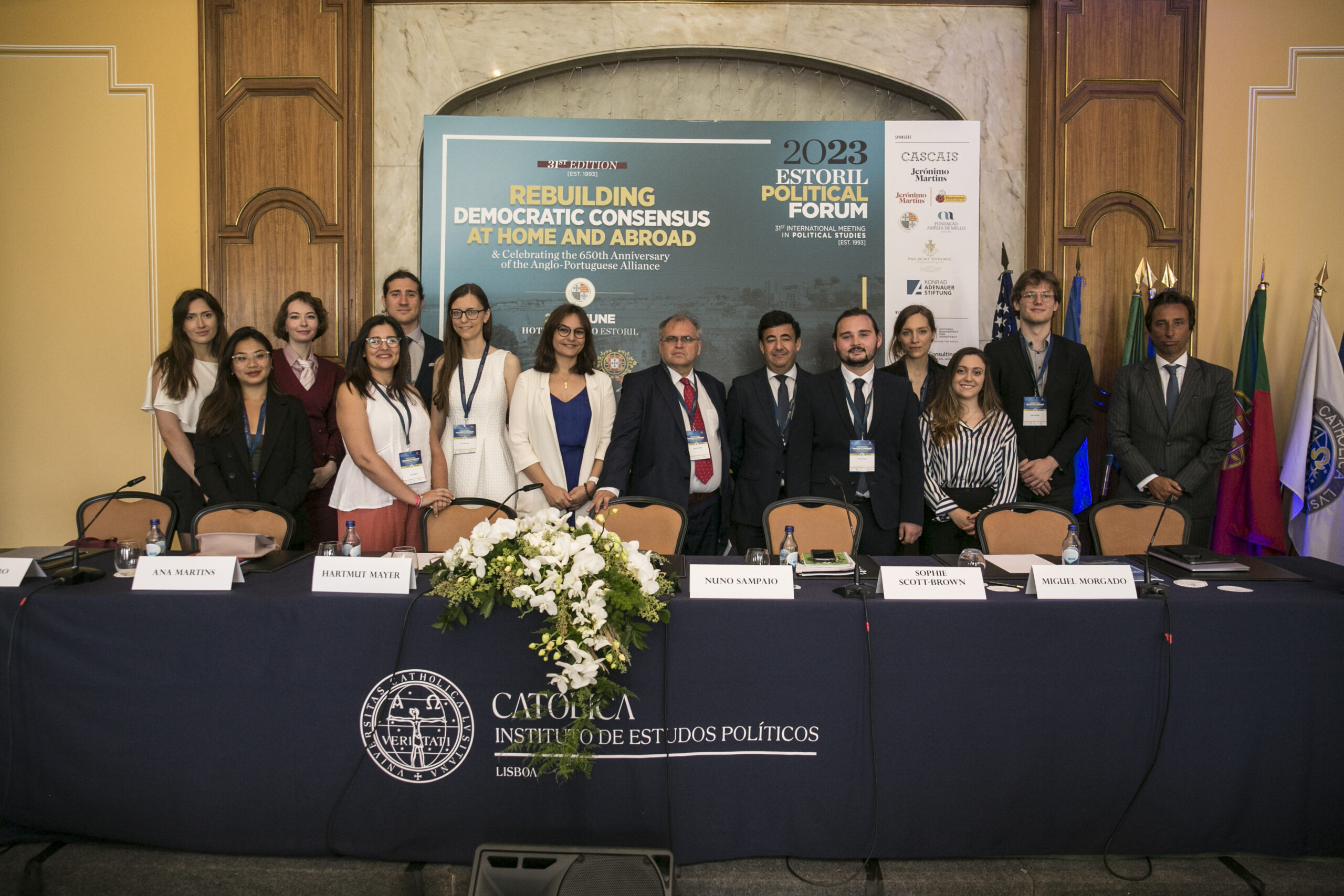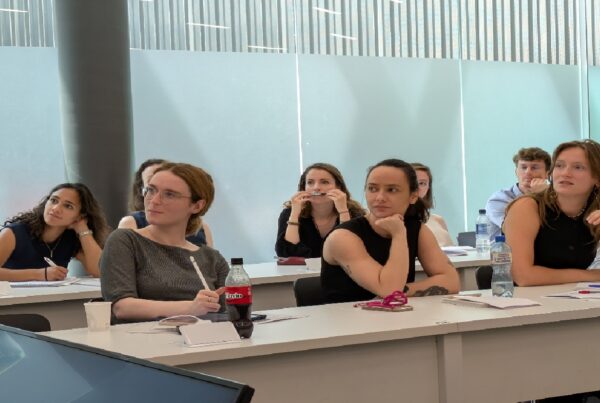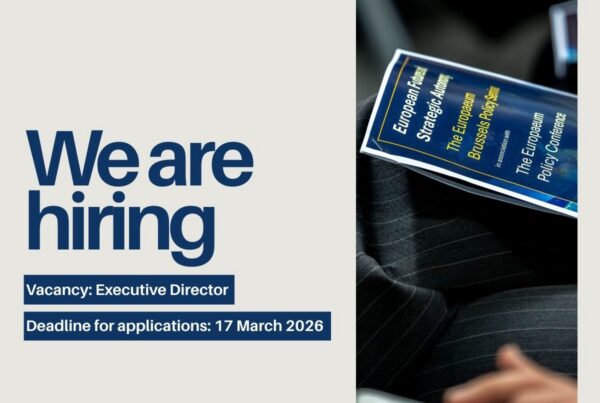
The Europaeum Debate:
“Democracy is good conflict management not the pursuit of consensus.”
28 June 2023 | Palácio Estoril, Estoril, Portugal
This year’s Europaeum Debate at the Estoril Political Forum flipped the Forum’s overall theme of ‘Rebuilding Democratic Consensus at Home and Abroad’ by proposing that: ‘Democracy is good conflict management, not the pursuit of consensus.’ If the speakers defending the proposition—Stuart Neave (St Andrews), Jeroen Spieker (Charles University), and Louisa Lopes (UCP)—thought they would have it all their own way, however, they were mistaken. A formidable Jagiellonian opposition team—Irene Fazio, Ewa Mrowiec, and Nicholas Keckhut—assembled to take them on. Ensuring fair play, Raven Yan Yip Yi (Jagiellonian University) assumed the role of assistant chair, while Dominka Jurosova (Jagiellonian University) and Miguel Caetano (UCP) took careful records of the proceedings.
Before getting underway, a preliminary ‘blind’ vote revealed overwhelming audience support for the conflict management position. It seemed the opposition had their work cut out for them. Stuart Neave with an assured, matter-of-fact delivery, reminded us of John Randolph’s ‘tyranny of the majority’ principle, questioned the possibility of anything other than shallow consensus, and observed how invoking ‘the will of the people’ was always dangerous. It was wiser, then, to accentuate political pluralism, and reduce the role of government to upholding and maintaining balance. Nicolas Keckhut, with equal composure, was having none of it. Consensus approaches, he argued, were equally concerned with avoiding conflict. The pursuit of consensus was important as it gave legitimacy to public policy making. A questioner from the floor was thinking along similar lines when they asked the defending side why we expected consensus decisions from juries but not among political groups. Surely this suggested that groups of people could reach full agreement on certain matters? Juries artificially restricted sample size and topic came the cool reply.
Keeping up the momentum, Louisa Lopes sharply observed that game theory examples, such as the Prisoner’s Dilemma, demonstrated the rationality of acting on an assumption of conflict rather than implanting trust issues on the electorate where they did not necessarily exist. ‘A kite rises against the wind, not for it’, she concluded. Irene Fazio came back strongly: zero sum games only exacerbate and increase polarisation. Party politics reproduces conflict because it needs conflict in order to exist. Consensus may be slow and laborious, but it was the truest form of legitimacy. A question from the floor challenged the opposition to account for how conflict between parties formed part of a greater political ‘we’ in which conflict was tolerated. Irene accepted this but thought the ‘we’ was restricted from fully realising its potential by over-emphasis on conflict between parties.
The third and final speakers bucked the trend for coolness and increased the passion. Sensing all was to play for, Jeroen Spieker went on the attack. Politics is done through political groups. These groups have interests and motivations which cannot always be reconciled. We don’t live in village communities anymore so full consensus is just not feasible. Ewa Mrewiec matched his conviction by declaring that good conflict management needs conflict to manage and therefore fails to recognise plausible alternatives. Consensus was not just about finding common ground but creating common ground between people.
While the audience digested the arguments, discussants Dr Ana Martins (alumna of Estroil Political Forum and the University of Oxford), Dr Miguel Morgado (IEP-UCP), and Dr Sonia Ribeiro (IEP-UCP) put their own observations to the speakers. Dr Martins noted that the distinction between consensus as an outcome and as a pursuit was important. Dr Morgado noted that the terms of the motion loaded things in favour of the defence unfairly and thought that matters could be improved by clarifying terms, while Dr Ribeiro also wished to know what the speakers believed really distinguished their respective ideas for democracy. Replying for the defence, Jeroen reiterated that he was neither pessimistic or optimistic about democracy, just realistic, while Ewa and Nicolas replied that the opposition believed that democracy should be hopeful and ambitious.
Moving to the vote, the motion was put again to the audience. While assistant chair Raven Yan Yi Yip was able to confirm a narrow victory for conflict management, the opposition had gained substantial ground, coming close to overturning their opponents. Congratulations to all the speakers, to the assistant chair and record keepers. Thank you to the discussants for their excellent comments. Grateful thanks to our host Professor Nuno Sampaio, to Professor João Carlos Espada, and the organising team of the Estoril Political Forum, and to Dr Lucja Piekarska the debate co-ordinator from Jagiellonian University.



